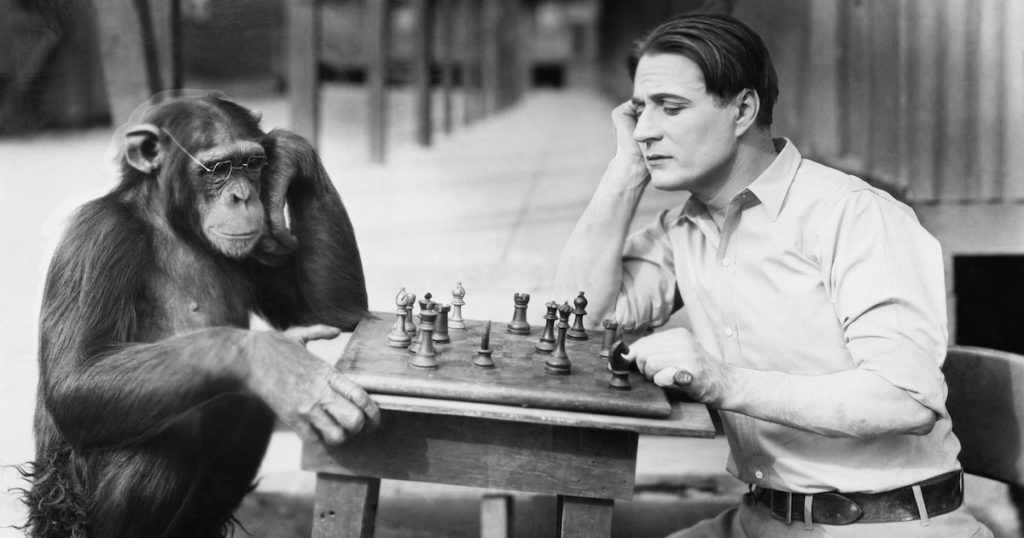 Culture & Ethics
Culture & Ethics
 Evolution
Evolution
Professor: We Shouldn’t Necessarily Value Humans Over Other Animals

New York University environmentalism prof Jeff Sebo, co-author of Chimpanzee Rights (2018), sees human exceptionalism (the idea that there is something unique about human beings) as a danger to humans and other life forms. He does not think that we should necessarily prioritize humans over animals:
Most humans take this idea of human exceptionalism for granted. And it makes sense that we do, since we benefit from the notion that we matter more than other animals. But this statement is still worth critically assessing. Can we really justify the idea that some lives carry more ethical weight than others in general, and that human lives carry more ethical weight than nonhuman lives in particular? And even if so, does it follow that we should prioritise ourselves as much as we currently do? …
My goal is instead to argue against a moderate form of human exceptionalism, according to which humans contingently matter more than nonhumans. If you are among the many who think that we take priority over other animals because of our ‘higher’ capacities and ‘stronger’ relationships, this is wishful thinking. There are too many nonhumans, and our lives are too intertwined with theirs, for that to be plausible. This ‘moderate’ view is not as ethical as you think.
JEFF SEBO, “AGAINST HUMAN EXCEPTIONALISM” AT AEON (MAY 5, 2022)
Irrational Humans? Sure
He argues that humans are often not rational and that some animals show human-like qualities:
First, we might not always have a higher capacity for agency than other animals. We all lack the capacity for rational reflection early in life, some of us lose this capacity later in life, and some of us never develop this capacity at all. Meanwhile, many nonhuman animals have the capacity for memory, emotion, self-awareness, social awareness, communication, instrumental reasoning and more. Human and nonhuman agency thus overlap substantially in practice.
Moreover, even when we do have a higher capacity for agency than other animals, this difference might be smaller than we think. Our views about agency are anthropocentric, in that we treat human agency as the standard against which all forms of agency should be compared. But while human agency is certainly impressive, nonhuman agency is impressive too. And if we studied nonhuman agency on its own terms, we might discover forms of self-determination that humans lack.
JEFF SEBO, “AGAINST HUMAN EXCEPTIONALISM” AT AEON (MAY 5, 2022)
Of course, lack of immediate rational qualities is a conventional justification for abortion and euthanasia.
He goes on, ending with:
And when we take our thumbs off the scales, we can expect the scales to shift. We should already be treating nonhumans much better and, eventually, we might even need to prioritise their interests and needs over our own. We should start preparing for that possibility now.
JEFF SEBO, “AGAINST HUMAN EXCEPTIONALISM” AT AEON (MAY 5, 2022)
In the Real World
Thumbs off the scales? Of course, in the real world, there have been many cultures in which the king’s horse or dog or a sacred animal was worth the lives of several humans. If we don’t have that culture where we live, that is a moral advance, not a decline. Human rights is the thumb on the scale.
Anti-human exceptionalism advocates always manage to avoid the obvious point that we can and do oppose cruelty to animals without claiming that there is nothing special about being human.
Claiming that there is nothing special about being human — given the world we live in — is either a flight from reality or a journey into darker motives.
Read the rest at Mind Matters News, published by Discovery Institute’s Bradley Center for Natural and Artificial Intelligence.
